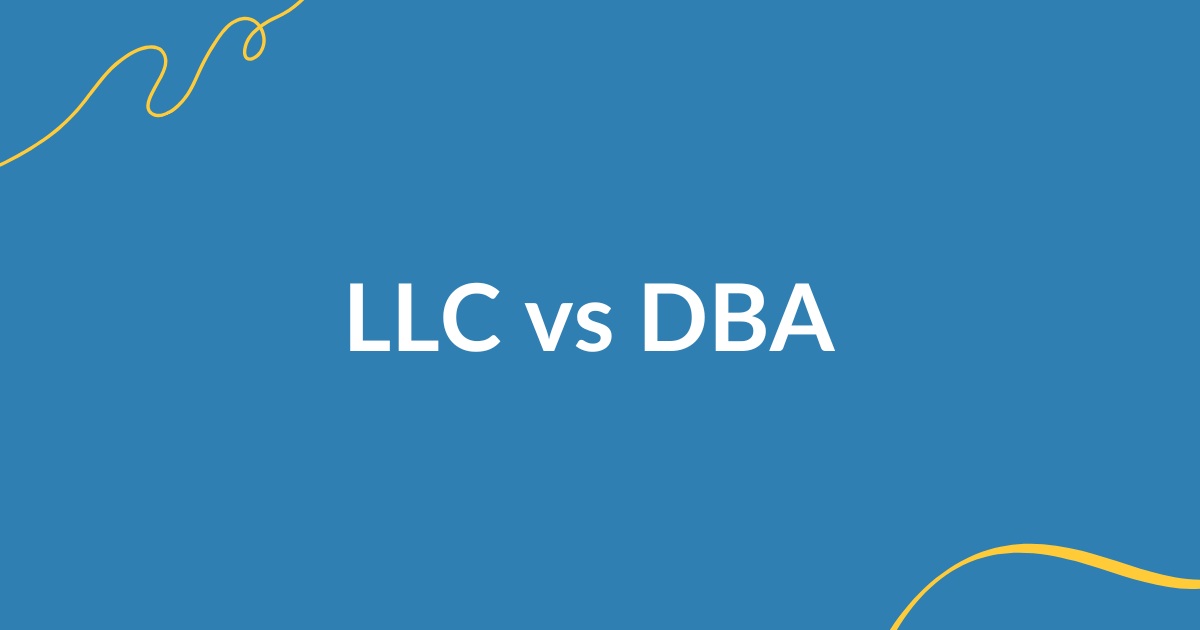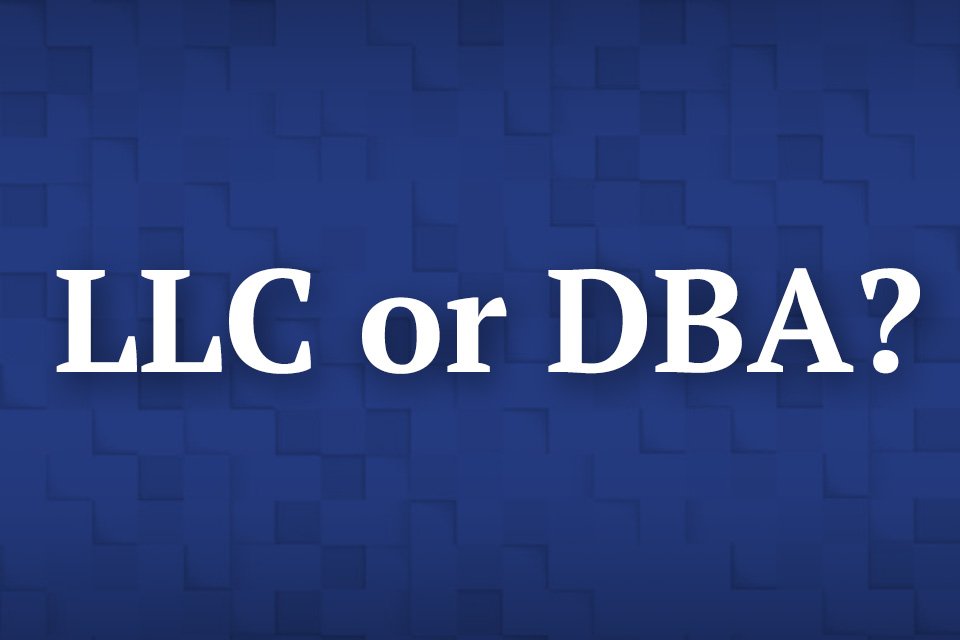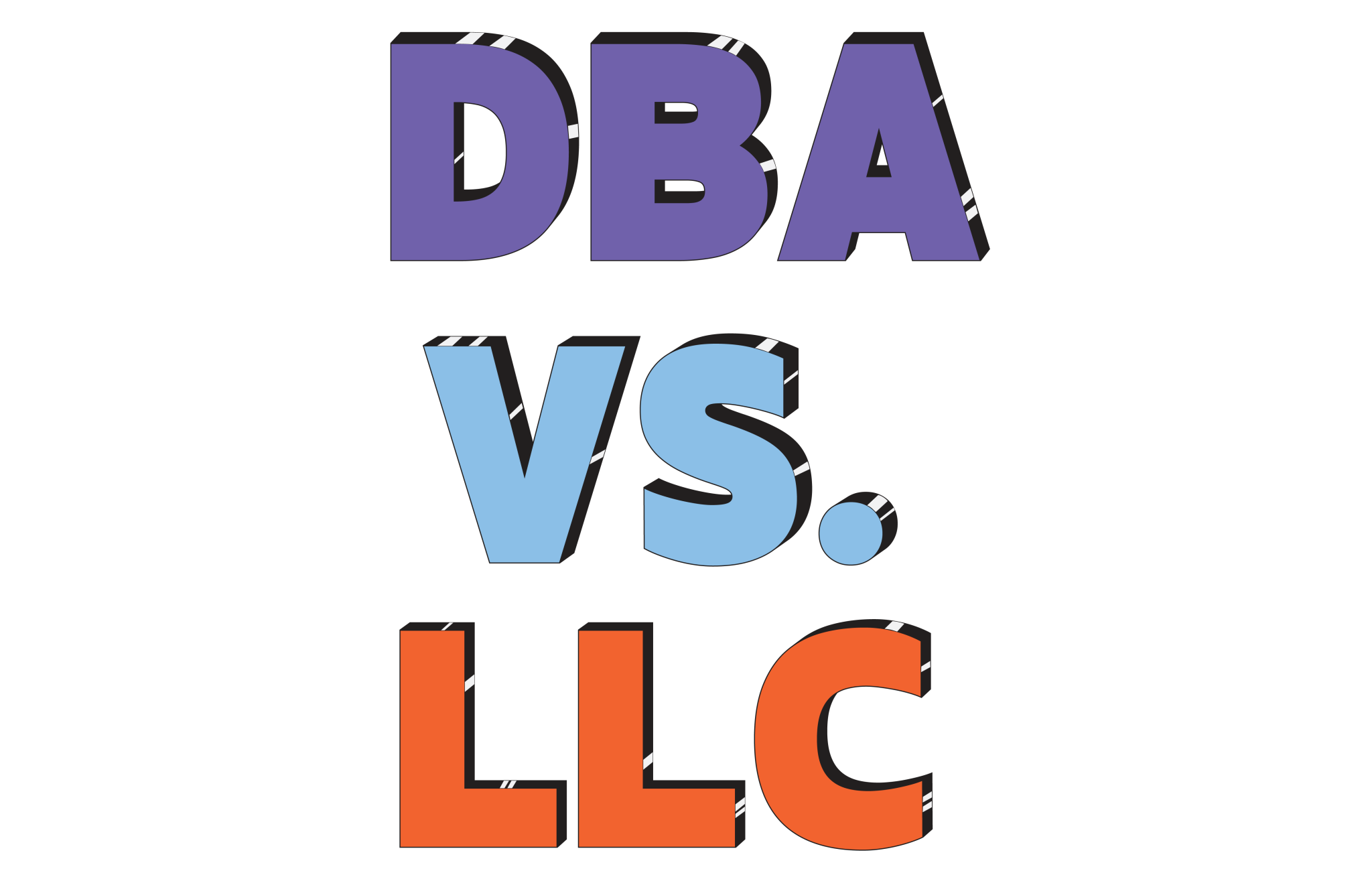
LLC vs DBA: Complete Guide for Business Owners
What is an LLC?
A Limited Liability Company (LLC) is a legal business entity that separates your personal assets from your business assets. When you form an LLC, you’re creating an entirely new legal entity that can own property, enter contracts, and conduct business independently.
Key Features of an LLC:
- Provides personal liability protection for owners (called members)
- Creates a separate legal entity distinct from its owners
- Offers flexible tax options (can be taxed as sole proprietorship, partnership, or corporation)
- Requires formal registration with your state
- Must file articles of organization and pay filing fees
- Needs to maintain compliance with state regulations
What is a DBA?
A DBA (Doing Business As), also known as a fictitious name, trade name, or assumed name, is simply a way to operate your business under a name different from your legal name or your company’s registered name. A DBA is not a separate legal entity—it’s just an alternate name for your existing business.
Key Features of a DBA:
- Allows you to operate under a different business name
- Does not create a separate legal entity
- Does not provide liability protection
- Easier and cheaper to register than an LLC
- Registration requirements vary by state and county
- Can be used by sole proprietors, partnerships, corporations, and LLCs
LLC vs DBA: Key Differences
Legal Protection
The most significant difference between an LLC and a DBA is liability protection. An LLC shields your personal assets (home, car, personal bank accounts) from business debts and lawsuits. If your LLC is sued or goes into debt, creditors generally cannot go after your personal property.
A DBA offers zero legal protection. If you’re operating as a sole proprietor with a DBA and get sued, your personal assets are at risk. You and your business are legally the same entity.
Business Structure
An LLC is a formal business structure recognized by the state. It exists as its own legal entity, can own assets, enter contracts, and continue to exist even if ownership changes.
A DBA is merely a name registration. It doesn’t change your underlying business structure at all. If you’re a sole proprietor, you remain a sole proprietor—just operating under a different name.
Formation and Cost
Forming an LLC requires filing articles of organization with your state, paying filing fees (typically $50-$500 depending on the state), and maintaining annual compliance requirements. The process is more complex and expensive.
Registering a DBA is simpler and cheaper, usually costing $10-$100. You typically file with your county clerk or state business office, and the process can often be completed in a matter of days.
Taxation
LLCs offer flexible tax treatment. By default, single-member LLCs are taxed as sole proprietorships, and multi-member LLCs as partnerships. However, you can elect to be taxed as an S-corporation or C-corporation if beneficial for your situation.
A DBA has no impact on your taxes whatsoever. You’re taxed based on your underlying business structure (sole proprietorship, partnership, corporation, or LLC).
Credibility and Banking
Both LLCs and DBAs can enhance your business credibility and allow you to open business bank accounts. However, LLCs generally provide more credibility because they demonstrate you’ve invested in formal business structure and protection.
Use Cases
You might choose an LLC when you want to protect personal assets, establish business credibility, have multiple owners, or plan to seek investment funding.
You might choose a DBA when you want to operate under a different name without the formality of creating a new entity, test a business idea inexpensively, or run multiple business ventures under different names within one LLC.
Can You Have Both?
Absolutely! In fact, many businesses use both. You can form an LLC and then register a DBA to operate under a different name. For example, “Smith Enterprises, LLC” might register a DBA for “The Coffee Corner” to operate a café.
This combination gives you the legal protection of an LLC while allowing you the flexibility to brand your business with a more marketable name.
Which Should You Choose?
The decision between an LLC and a DBA depends on your specific situation:
Choose an LLC if:
- You want to protect your personal assets from business liability
- You’re starting a business with significant risk or liability exposure
- You plan to hire employees
- You want to establish business credit
- You’re seeking investors or planning to grow significantly
- You want flexibility in tax treatment
Choose a DBA if:
- You’re a sole proprietor who wants to operate under a business name
- You’re testing a business idea with minimal investment
- You want to brand your business without forming a new entity
- Your business has low liability risk
- You’re on a tight budget and want to start quickly
Choose both if:
- You want the legal protection of an LLC but need to operate under a different name
- You have an LLC but want to run multiple brands or ventures

Frequently Asked Questions
Is a DBA the same as an LLC?
No, they are completely different. An LLC is a legal business structure that provides liability protection and creates a separate legal entity. A DBA is simply a business name registration that allows you to operate under a name different from your legal name. A DBA does not provide any legal protection or change your business structure.
Do I need an LLC if I have a DBA?
Not necessarily. A DBA allows you to operate under a business name, but it doesn’t provide liability protection. Whether you need an LLC depends on your risk tolerance, the nature of your business, and whether you want to separate your personal and business assets. Many sole proprietors operate successfully with just a DBA, while others prefer the protection of an LLC.
Can I have a DBA without an LLC?
Yes, absolutely. Sole proprietors and partnerships commonly register DBAs to operate under business names without forming an LLC or corporation. However, remember that operating with just a DBA means you don’t have the liability protection that an LLC provides.
Can an LLC have a DBA?
Yes, an LLC can register one or multiple DBAs. This is common when an LLC wants to operate different businesses or brands under different names. For example, your LLC might be called “Johnson Holdings, LLC” but operate retail stores under DBAs like “Johnson’s Hardware” and “Johnson’s Garden Center.”
Which is more expensive, an LLC or DBA?
An LLC is generally more expensive. LLC formation costs typically range from $50 to $500 in filing fees depending on your state, plus potential annual fees and registered agent costs. A DBA usually costs between $10 and $100 to register. However, LLCs provide significantly more value through liability protection and business structure benefits.
Do I pay taxes differently with an LLC vs DBA?
A DBA doesn’t affect your taxes at all—you’re taxed based on your underlying business structure. An LLC offers flexible tax treatment. By default, single-member LLCs are taxed as sole proprietorships (pass-through taxation), but you can elect S-corp or C-corp taxation if beneficial. The key difference is that LLCs can choose their tax classification, while DBAs cannot because they aren’t legal entities.
How long does it take to register an LLC vs a DBA?
DBA registration is typically faster, often taking just a few days to a couple of weeks depending on your location. LLC formation usually takes 1-4 weeks, though some states offer expedited processing for an additional fee. Both processes have become faster with online filing options.
Does a DBA protect my business name?
A DBA provides limited name protection, usually only within your county or state, depending on where you file. An LLC name is protected statewide upon formation. For broader protection, you’d need to register a trademark with the USPTO, which can be done regardless of whether you have an LLC or DBA.
Can I convert a DBA to an LLC later?
Yes, you can always form an LLC later if you start with just a DBA. However, this isn’t technically a “conversion”—you’d be forming a new legal entity (the LLC) and then transferring your business operations to that entity. You might need to transfer contracts, licenses, and permits to the new LLC.
Do I need a lawyer to set up an LLC or DBA?
While not legally required, consulting a lawyer can be helpful, especially for LLCs. Many people successfully file DBAs on their own as the process is straightforward. For LLCs, you can use online formation services or file directly with your state, but legal advice can ensure you structure your business optimally for your specific situation and comply with all requirements.
Which provides better credibility with customers?
Generally, an LLC provides more credibility because it demonstrates you’ve invested in a formal business structure. However, a DBA still looks more professional than operating under your personal name. The credibility difference matters more in some industries than others. For many small service businesses or freelancers, a DBA provides sufficient professional appearance.
Can I open a business bank account with just a DBA?
Yes, most banks allow you to open a business bank account with a DBA. You’ll typically need your DBA registration certificate, your Social Security number or EIN, and proper identification. Having a business bank account is important for keeping business and personal finances separate, regardless of your business structure.
Conclusion
Understanding the difference between an LLC and a DBA is crucial for making informed decisions about your business structure. An LLC provides legal protection and creates a separate business entity, while a DBA simply allows you to operate under a different name. Neither option is inherently better—the right choice depends on your business needs, risk tolerance, and growth plans.
Many successful businesses start with a DBA to test their concept, then form an LLC as they grow and need more protection. Others begin with an LLC from day one to ensure their personal assets are protected from the start. Consider consulting with a business attorney or accountant to determine the best structure for your specific situation.
Remember, you can always change your business structure as your needs evolve. The important thing is to make an informed decision that aligns with your current circumstances and future goals.